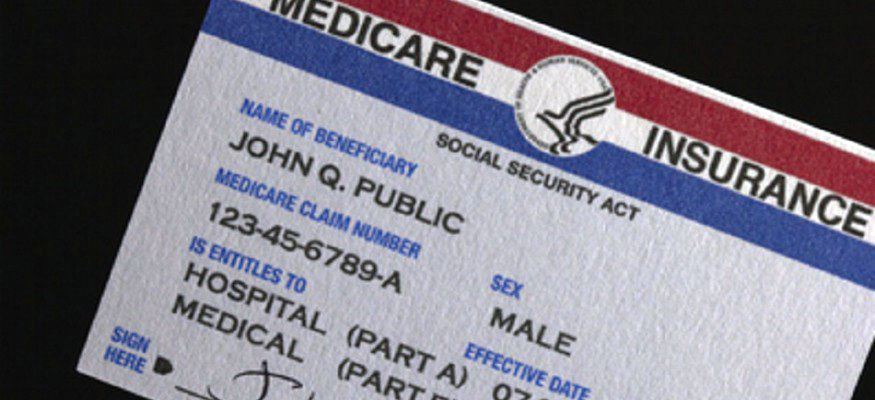Medicare Change: Therapy Cap Limits and What it Means to You

The hard cap on outpatient physical, speech and occupational therapy under Medicare Part B is no more. Congress ended the two-decade long battle of making exceptions for therapy cap limits when the new federal budget passed in early February of this year.
Currently, Medicare beneficiaries will no longer have to worry about receiving medically necessary services that go over the previously set cap limit.
“Our profession has faced many challenges over the years, and there will be more ahead,” said Amy Lamb, President of the American Occupational Therapy Association, in a press release.
“For today, we must celebrate the end of a senseless policy that threatened the health and well-being of Medicare beneficiaries and our profession for 20 years.”
Medicare beneficiaries who needed outpatient therapy services were subject to a hard cap of $2,010 in 2018. That hard cap will now be replaced by a targeted medical review when services reach $3,000.
Medicare Cards are Changing in 2018: 5 Fast Facts You Need to Know
The Centers for Medicare & Medicaid Services (CMS) are removing Social Security Numbers from Medicare cards to help prevent fraud, fight identity theft and protect taxpayers with Medicare.
Medicare cards will now have a new Medicare Number, called a Medicare Beneficiary Identifier (MBI), that is a unique number to you and it will replace the Social Security-based Health Insurance Claim Number (HICN). New cards will start being mailed as early as April in states across the country, but here are five fast facts you need to know now about what to expect with this important Medicare change.
Managing Changes In Your Retiree Employer Medicare Plan
 Retirement comes with its own set of questions and things to look out for, especially with health insurance coverage for individuals who are eligible for Medicare. Retiree insurance coverage offered by a former employer or a retiring spouse’s employer is not a mandatory benefit, and the sponsoring employer may change premiums and benefits or cancel the plan entirely based on their internal needs. If you have group insurance from a retiree plan along with Medicare coverage, Medicare provides primary coverage and your employer-sponsored insurance is secondary. You are, however, responsible for the premiums on your retiree group plans and your Medicare coverage. The cost and coverage varies from company to employee, depending on which package is offered.
Retirement comes with its own set of questions and things to look out for, especially with health insurance coverage for individuals who are eligible for Medicare. Retiree insurance coverage offered by a former employer or a retiring spouse’s employer is not a mandatory benefit, and the sponsoring employer may change premiums and benefits or cancel the plan entirely based on their internal needs. If you have group insurance from a retiree plan along with Medicare coverage, Medicare provides primary coverage and your employer-sponsored insurance is secondary. You are, however, responsible for the premiums on your retiree group plans and your Medicare coverage. The cost and coverage varies from company to employee, depending on which package is offered.
2017 Medicare Parts A & B Premiums and Deductibles Announced
 Date: 2016-11-10
Date: 2016-11-10
Title: 2017 Medicare Parts A & B Premiums and Deductibles Announced
Contact: press@cms.hhs.gov
2017 Medicare Parts A & B Premiums and Deductibles Announced
Today, the Centers for Medicare & Medicaid Services (CMS) announced the 2017 premiums for the Medicare inpatient hospital (Part A) and physician and outpatient hospital services (Part B) programs.
Medicare Part B Premiums/Deductibles
Medicare Part B covers physician services, outpatient hospital services, certain home health services, durable medical equipment, and other items.
How Do Medicare Advantage Plans and Medicaid Work Together?

Health insurance can be confusing for many Wisconsin seniors and their families. Here are a few tips on what you should know before talking to a Milwaukee health insurance agent.
What Is Medicare Advantage?
Medicare Advantage, or Part C plans, aren’t provided by the government. They’re actually offered by private companies that have been approved by Medicare. As a result, the quotes and services you receive may vary.
What does a quote for Part C cover? With this plan, Medicare pays your provider a fixed sum each month. This money goes towards the qualified health care services you use.
Insurers that offer Part C can set their own policy rules and prices. Two quotes with equal dollar amounts may offer distinctly different coverages.
Open Enrollment 2017: Should I Stay or Should I Change My Plan?

Medicare Advantage plans and prescription drug plans are about to go into their Annual Open Enrollment Period (OEP). There are several reasons to review your Wisconsin 2016 plan with a licensed insurance agent each year.
Many individuals on Medicare in Wisconsin for plan year 2016 are currently enrolled in one of these top three: AARP United Healthcare’s Medicare plan, Humana’s Medicare plan, or Anthem’s Medicare plan. Many individuals on Medicare could be enrolled in a Medicare Supplement as well, along with a stand alone prescription drug plan. During the Medicare Open Enrollment Period, which goes from October 15 through December 7, 2016, you can shop both Medicare advantage plans and prescription drug plans (PDP).
Can I Deduct My Health Insurance Premium?

Some individual taxpayers are able to claim an itemized deduction for their qualified medical expenses, including medical insurance plans premiums. In order to qualify, the qualified expenses must surpass 10% of an individual’s yearly-adjusted gross income. This percentage lowers to 7.5% if you or your spouse reached the age of 65 or older as of December 31st, 2014. In both situations, if you do not reach this percentage, you do not qualify for the deduction. It is essential to track and record every expense related to your healthcare in order to do so.
While most insurance premiums are applicable, a few are not. Be sure to check with your accountant so there are no delays in your filing.
Medicare insurance is coverage that typically begins once an individual turns 65. There are various types of coverage. Here is a brief description of each:



